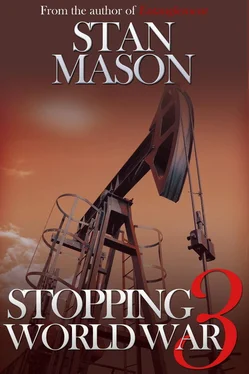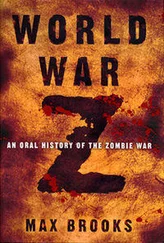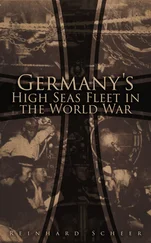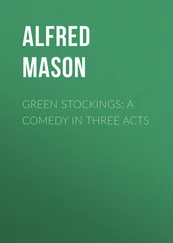‘I’ve come to interview Mustapha Ozal,’ I announced bravely. ‘I’m Mushtaq Hussein from Britain.’
He bade me enter with a sweep of his hand but as soon as I had crossed the threshold he placed a hand on my shoulder preventing me from going further. Before I could speak, he ran his hands over my body and down my legs checking that I was carrying no weapons.
‘Sorry about that,’ he said insincerely in a clipped English accent. ‘It’s just a formality. We all have a multitude of tasks to perform in these troubled times. One of them is security. One can never be too careful. Please come with me.’ I followed him down a short passage which had a number of doors. He opened one of them and ushered me inside. ‘You’ll be called shortly,’ he said, closing the door behind him, leaving me alone in the room.
I sat down on a modern chair and look around. There were three comfortable chairs and a round table made of mahogany. On a coffee-table lay a miscellany of Turkish newspapers and magazines. A few pictures adorned the walls but some were surrealistic and beyond my comprehension. In the far corner, on a small desk sat a computer and monitor. I had imagined that the man and the place was going to be mystical and strange. I was wrong! After five minutes had passed, just as my nerves were becoming frayed as a result of my deception, the door opened and a man of medium height, dressed in a dark blue suit, entered the room.
‘Sorry to keep you waiting,’ he apologised politely. ‘There are so many things to do these days one gets bogged down in trivia.’
I stood up as though it was necessary to do so in the presence of a potential messianic deliverer but he motioned me to sit down with a wave of his hand.
‘You are Mustapha Ozal I presume,’ I ventured, with an element of surprise creeping into my voice. I had expected him to be swathed in Arab robes with a turban, clutching a copy of the Quran in his hand and uttering phrases from it. But the man before me was smart, dapper, well-dressed and very Westernised, and he spoke as though he was a member of the aristocracy in Britain. I had seen pictures of the Mahdi of the Sudan who fought General Gordon, depicting a wild savage individual with evil eyes that pierced fiercely through the mortality of every one who challenged him. My subject was a far cry from that image!
‘Yes,’ he replied haughtily. ‘I am Mustapha Ozal and you are Mushtaq Hussein from England. I applaud you for publishing a new magazine to provide information on Islam and for the Muslim people of Britain. The brotherhood has grown quickly over the past fifty years while the work of Ayatollah Kumeini in establishing Iran as a totally secular state was a stroke of political genius. We need men like him in this world; we need men like you! It’s communication that counts. In Turkey, the spread of Islam has accelerated at the speed of light. The population balance between the city and villagers has been reversed. Sixty per cent of the people have become city dwellers with only forty-three per cent in 1980. Township immigration increased the numbers to the fold.’ He paused for a moment to think. ‘Forgive me for champing on about matters of which you are probably already aware. Please ask any questions you feel appropriate. And perhaps you’ll tell me about your magazine.’
‘Well,’ I began falteringly, the magazine will be glossy, in four colours, and consist of about forty pages. It will be issued monthly, not only to our brothers but to anyone else who wishes to read it. Hopefully it will attract many people to Islam over the next decade and thereafter.
‘Good… good!’ he commended enthusiastically. At that moment, the door opened and the other man entered with a tray bearing two cups of coffee which he set down on the small table.
‘So that’s the basic concept of the magazine,’ I continued blindly. ‘There will mostly be articles on Islam plus general information of interest to everyone. It’s necessary to be realistic in a modern world where people have so many diversions.’
‘Quite so,’ he uttered solemnly, lifting one of the cups which he handed to me.
I decided to venture on to the main subject so that I could prepare some kind of report for the debriefing session with Schmuel Musaphia. ‘If you’ll allow me to cut to the chase,’ I went on somewhat hesitantly, ‘the Mahdi is a divinely guided one. How do you see yourself in that role?’
‘It’s not so much how I see myself as how others see me. There have been many self-styled Mahdis over the centuries. Some are not even recorded in history because they were so ineffective. In order to understand the arrival of a Mahdi, one needs to examine the role in five different ways. Firstly, it’s absolutely essential that Allah has endowed such a person with virtues of outstanding charisma… an aura which can be felt by his followers and the capability of mesmerising his subjects to a point where they offer total commitment. Added to this is the essence of leadership which is often enhanced by the gift of speech or a silver tongue as well as the ability to command. None of these attributes can be acquired by learning or training. One has to be born with them. Without the authority which stems from these endowments of
Allah a man cannot be a Mahdi. Secondly, the divinely guided one is likely to be a Shi’ite because of the militancy of the Shias compared with the jurisprudent Sunnis. This may not necessarily be the case because if Allah deems that the Mahdi should rise from the ranks of the Sunnis then it’s the will of Allah, not of man. As you know, only one Muslin in seven is a Shi’ite, Thirdly, the Mahdi who once appeared carrying a black banner into battle would hardly survive in these times. He needs to be a well-educated and trained to a high degree in both politics and modern warfare. All the charisma and leadership in the world would be useless to a wild uneducated warrior. Gone are the days when a man with a gift for speech could rouse an army into action, like Shakespeare’s Henry the Fifth at Agincourt. The outcome of a force charging blindly into battle with fanaticism and zeal is disaster. Such activities have to be left to the romanticism of the past. The modern Mahdi needs to read at a highly-reputable college or university and be skilled in politics. He must understand every aspect of war and weaponry because if he intends to use strength and might there will be retaliation from worldwide sources. The fact is that technology is so advanced a war could be ended in hours if operated at its ultimate. Before you came, you probably wondered how much mysticism there would be in a Mahdi. Forget it, brother. There is no mysticism in this modern age. It is necessary to learn and absorb vast quantities of information at teaching institutions. The fourth issue relates to timing. History has been remarkable at fitting people into the right slot at the right time… or failing to do so. Sir Winston Churchill was much ignored in the 1930s when he warned about an imminent war with Germany. However, the timing of the Second World War was perfect for him pushing him directly into the limelight. History records that during the time of war he was an exceptional leader. Had the conflict started thirty years earlier or thirty years later, he would have been relatively unknown in the annals of history. Therefore it’s timing that brings the Mahdi to life rather than his sudden appearance on the horizon holding a black banner. It may be that I shall be too old when the time arrives and someone else will have to take my place.’
‘If that happens, do you think there will be another Mahdi?’ I advanced, recalling that Schmuel Musaphia had told me there were fourteen Mahdis being prepared and trained.
‘There will always be a Mahdi,’ he told me confidently. ‘There will always be men of such quality with the divine right. The problem is whether the timing is right for a Jihad in their lifetime.’
Читать дальше












